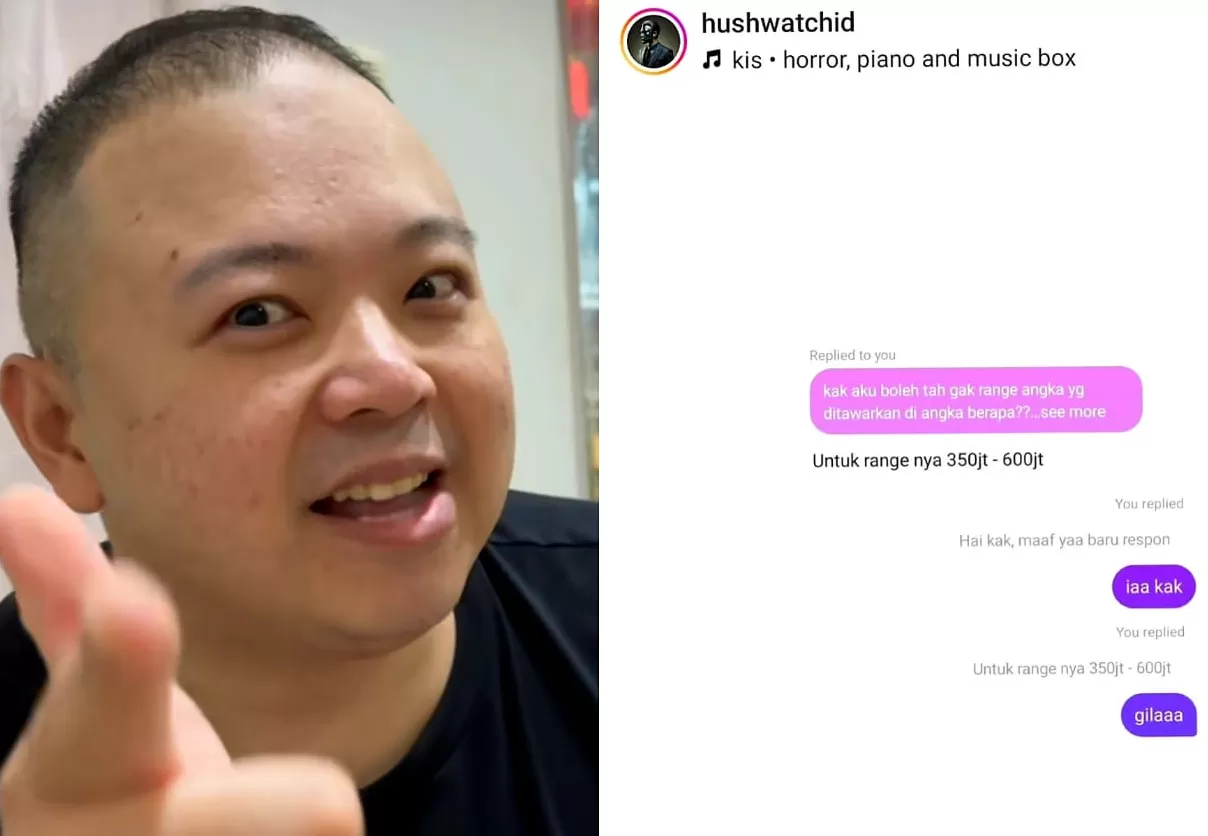
Chamberlains of London – Codeblu clarifies recent claims of extortion after accusations emerged on social media. The food vlogger, known for his candid reviews of restaurants, has been accused of offering to remove negative reviews for a fee of 350 million IDR to 600 million IDR. These allegations spread rapidly, sparking a debate among food enthusiasts and restaurant owners alike. Codeblu responded publicly to the controversy, explaining his position and addressing the accusations of wrongdoing. The situation has generated a significant amount of attention, with both supporters and critics sharing their views on the matter.
Codeblu, whose real name is William Anderson, is a food blogger recognized for his sharp critiques of the food and service at various eateries. Recently, the Instagram account @ssc_politik began sharing complaints from restaurant owners regarding Codeblu’s reviews. One of the owners claimed that Codeblu had demanded a fee of around 350 million IDR to remove a negative video review. This claim quickly gained traction, and the controversy escalated when the owner mentioned having reported Codeblu to the police.
“We have already reported him to the South Jakarta police, but we haven’t received any updates,” the owner said. This statement added fuel to the fire, leading to widespread speculation and online discussions about Codeblu’s actions.
“Read about: Chef Juna Shares His Thoughts on Joining the SCBD Nightclub as Commissioner”
Amidst the growing controversy, Codeblu addressed the allegations on his Instagram account. In his post, he explained that his rate card was high due to the value of his expertise. “My rate card is expensive because my knowledge is valuable. If you don’t need it, don’t work with me,” he wrote in his caption. Codeblu emphasized that his high fees did not equate to extortion and urged people not to make accusations without evidence.
He also warned about the dangers of making baseless claims, stating, “Don’t call me an extortionist just because my rate card is high. Be careful when naming names without proof. Defamation is a crime.” Codeblu’s message was clear: he felt that the accusations were unjust and needed to be addressed.
To further clarify the situation, Codeblu shared a recording of his conversation with a legal expert. The expert explained that there was no case of extortion because no threats had been made, and no money had been exchanged. According to the legal expert, the situation was a business transaction, not an act of extortion. Despite this explanation, the controversy continued to generate debate, with some people believing that Codeblu’s actions were inappropriate.
“Read more: Japanese Hambagu Steak Recipe – A Savory Delight at Le Stanze Bistrot Cafe”
The controversy began when Codeblu posted a WhatsApp chat with a client regarding a consulting fee of 350 million IDR. The client had reached out to Codeblu because they were unhappy with his negative review of their business. In the conversation, Codeblu suggested that the review could be removed in exchange for a 350 million IDR fee, offering to replace it with positive content. While some see this as a business arrangement, others argue that such practices are unethical.
Codeblu also noted that his standard rate for such services was 600 million IDR, suggesting that the 350 million IDR offer was relatively cheap. The proposal to remove a negative review in exchange for payment led some critics to label it as extortion, further complicating the situation.
The accusations sparked mixed reactions from the public. While some supported Codeblu’s right to charge for his services, others condemned his approach. Celebrity chef Rinrin Marinka shared a post from @ssc_politik on her Instagram story, adding her voice to the conversation. Additionally, Farida Nurhan, who has had past issues with Codeblu, liked the post, indicating her support for the claims.
The situation has created a divide, with some believing that Codeblu’s actions were justified by the value of his expertise, while others argue that he exploited his influence for financial gain. The debate continues to unfold as more people weigh in on the matter.
Amid the public backlash, Codeblu clarifies that he became emotional, asking for the account @ssc_politik to stop posting evidence related to the alleged extortion. He was said to have cried and begged for the posts to be removed, showing the emotional toll the controversy had taken on him. This personal response added complexity to the situation, as it highlighted the human side of the controversy.
While Codeblu continues to defend his actions as part of his business, he clarifies that the accusations of extortion have raised larger questions about ethics in the food blogging industry. His supporters argue that his fees are simply a reflection of his professional expertise, while others believe that the practice of charging to remove negative reviews is unethical and manipulative.
Codeblu also addressed the defamation aspect of the situation, emphasizing the legal implications of spreading false accusations. “Fitnah (defamation) is a crime,” he stated in his Instagram post. This comment highlights his belief that the ongoing rumors and accusations were damaging to his reputation and unfairly portrayed him as a criminal.
While the controversy continues to simmer, Codeblu clarifies that he maintains his stance that he is not guilty of extortion and that his business practices are legitimate. However, the incident has left many questioning the ethics of influencers and their role in shaping public opinion through their reviews and content. The debate over Codeblu’s actions shows no signs of subsiding, as both sides present their arguments.
